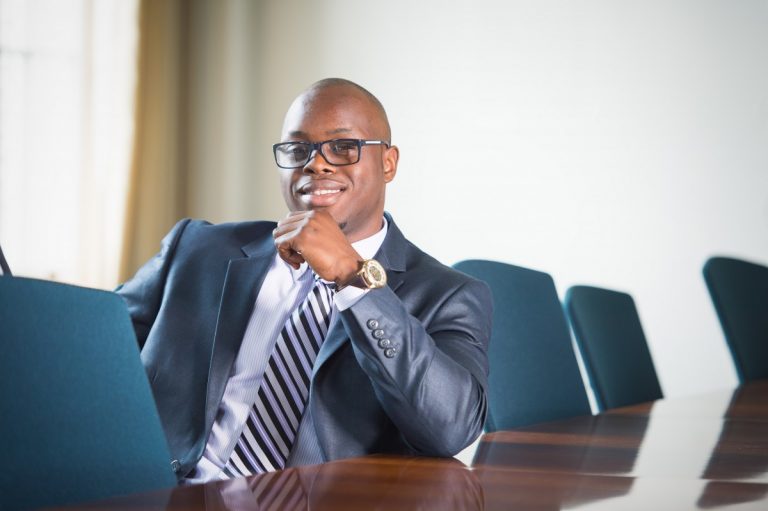
In a globally connected world like ours, international affairs are more influential to the future of humanity than any other concept.
Apocalypse films often depict the human race being wiped out by an epidemic virus or the rise of evil machines, but with world leaders harbouring an army of nuclear weapons and technology advancing at an exponential rate, it’s far more likely that fragile global relations will see the end of the human race.
Humans have been at war for 3,132 of the last 3,400 years. A mere eight percent of humanity’s entire recorded history has been peaceful. International relations have always been tenuous, with political turmoil and violence defining human activity.
And now, the stakes are even higher. With the US, UK, Russia, North Korea, China, France, India and Pakistan all owning Weapons of Mass Destruction, unstable relations could see entire nations being obliterated in one almighty blow.
Even with war put aside, international relations still determine things as large as the future of our environment through global policies, on top of things as small as what lands in our kitchen cupboards as a result of international trade.
“Put simply, international relations is about war and peace, conflict and cooperation, wealth and poverty, power and change, and understanding patterns of behaviour between the actors in the world – from states, to presidents, to corporations,” Mike Sheehan and Helen Brocklehurst write for The Independent.

As a student of international affairs, you’ll gain insight into how policies are made, what considerations are absorbed when making global decisions and how to positively impact everyone’s existence.
Instead of hearing about events on the news, international affairs determine what makes the headlines. A degree in this field will instil you with the knowledge to understand and influence major global decisions.
Whether you are passionate about eradicating global poverty, encouraging corporations to go green or empowering oppressed groups, international affairs will grant you the theoretical knowledge and historical context needed to understand how best to drive these ideas forwards on a global scale.
“Young people are living in a world of independent states, which profoundly affects the way they live. Yet today’s state system, mainly challenged by the forces of globalization, struggles to find ways to adapt to new challenges so as to keep providing its people the core values that states are expected to uphold, namely security, freedom, order, justice and welfare,” says Panayotis Tsakonas.
By studying international affairs, you can influence the complex dynamics that determine the fate of humanity. Will global warfare continue? Will businesses take responsibility for their environmental impact? Will governments implement successful wealth distribution policies? The future is in your hands.
If you want to study International Affairs to become a leader of tomorrow, make sure you consider these progressive universities…
SAM NUNN SCHOOL OF INTERNATIONAL AFFAIRS, GEORGIA INSTITUTE OF TECHNOLOGY

Studying at the Sam Nunn School of International Affairs at the Georgia Institute of Technology allows you to embrace the dynamic world of technology with an emphasis on global issues and responsibility. Much more than just a technology school, Georgia Institute of Technology offers a comprehensive education that integrates scientific theory with global policy and affairs.
The Sam Nunn School of International Affairs is built on one philosophy: “Bridges must be built between the world of science and the world of human relations, bridges which can give shape and purpose to our technology and breathe heart and soul into our knowledge.”
In light of this, the Master’s of Science in International Affairs program educates students in the global issues affecting the world today, including international security, tenuous relations between states, sustainable global development, technology and infrastructure.
Over a two-year course, students will gain theoretical and methodological expertise of international affairs in in East Asia, Europe, and Latin America, allowing them to become global influencers after graduation.
UNIVERSITY AT ALBANY, SUNY, ROCKEFELLER COLLEGE OF PUBLIC AFFAIRS & POLICY
Nestled in the thriving New York State capital, the University at Albany, State University of New York inspires more than 17,000 students and cultivates success.
At UAlbany’s Rockefeller College of Public Affairs & Policy, aspiring changemakers gain the tools and knowledge needed to make a difference in the world. Ranked 19th in the nation by US News and World Report, the standard of public affairs education offered here is competitive and elite, shaping dynamic leaders who will create and implement the transformative policies of tomorrow’s world.

Rockefeller’s nationally ranked MPA Program provides unique specializations in non-profit management, health policy, information management, policy analysis, public financial management, homeland security and more. Meanwhile, students in Rockefeller’s MIA Program learn to navigate complex transnational issues and manage organizations in an increasingly globalized world.
On top of offering tuition rates that are yet to meet their match, 100 percent of the College’s professional degree students find a job in their respective field within 12 months of course completion, shining a light on the resounding employability of Rockefeller College graduates.
SCHOOL OF POLITICS AND INTERNATIONAL RELATIONS, UNIVERSITY OF EDINBURGH
As a prestigious Russell Group university, the University of Edinburgh allows you to become part of a world-leading academic community. At this research-intensive institution, you will work alongside leaders in Politics and International Relations research throughout a rigorous academic program.
Undergraduate students can pursue a degree in International Relations, International Relations & Law or International Relations & Quantitative Methods. Postgraduate students have the opportunity to explore International Relations, International Relations of the Middle East, International Relations of the Middle East with Arabic.
Specialising in constitutional, territorial and Scottish politics, European politics, foreign policy, gender, political theory and ethics, the Middle East, global environment and security studies; the School of Politics and International Relations at the University of Edinburgh is renowned for its influential alumni members which include government ministers, members of parliament, policy analysts, broadcasters and business leaders.

Alexis Brown
THE BUSH SCHOOL OF GOVERNMENT & PUBLIC SERVICE, TEXAS A&M UNIVERSITY
Focusing on international relations, international economics, security, international development, intelligence, diplomacy, and regional studies, the Bush School of Government & Public Service at Texas A&M university offers students a well-rounded understanding of global matters.
Here, undergraduate students have the flexible option of studying the five-year Bachelor’s/Master’s program which allows students to take majors in Political Science, Economics, Agriculture Economics, Sociology, or International Studies, and finish with both a Bachelor’s and Master’s qualification.
Master’s students can also study the two-year Master’s course in International Affairs. This program allows students to engage with general knowledge and analytical skills in diplomacy, international politics, regional studies, intelligence, and international economic development.
The school also encourages students to gain real-world experience through internship programs and study abroad opportunities. A network of Federal and State government agencies, NGOs, various think tanks and the private sector offer students the chance to apply their theoretical knowledge in a professional setting, while study abroad initiatives encourage students to develop an international perspective beyond the classroom.
*Some of the institutions featured in this article are commercial partners of Study International
Liked this? Then you’ll love these…
Thought leaders in Public Policy
Sol Price School of Public Policy: Empowering people through research and action







